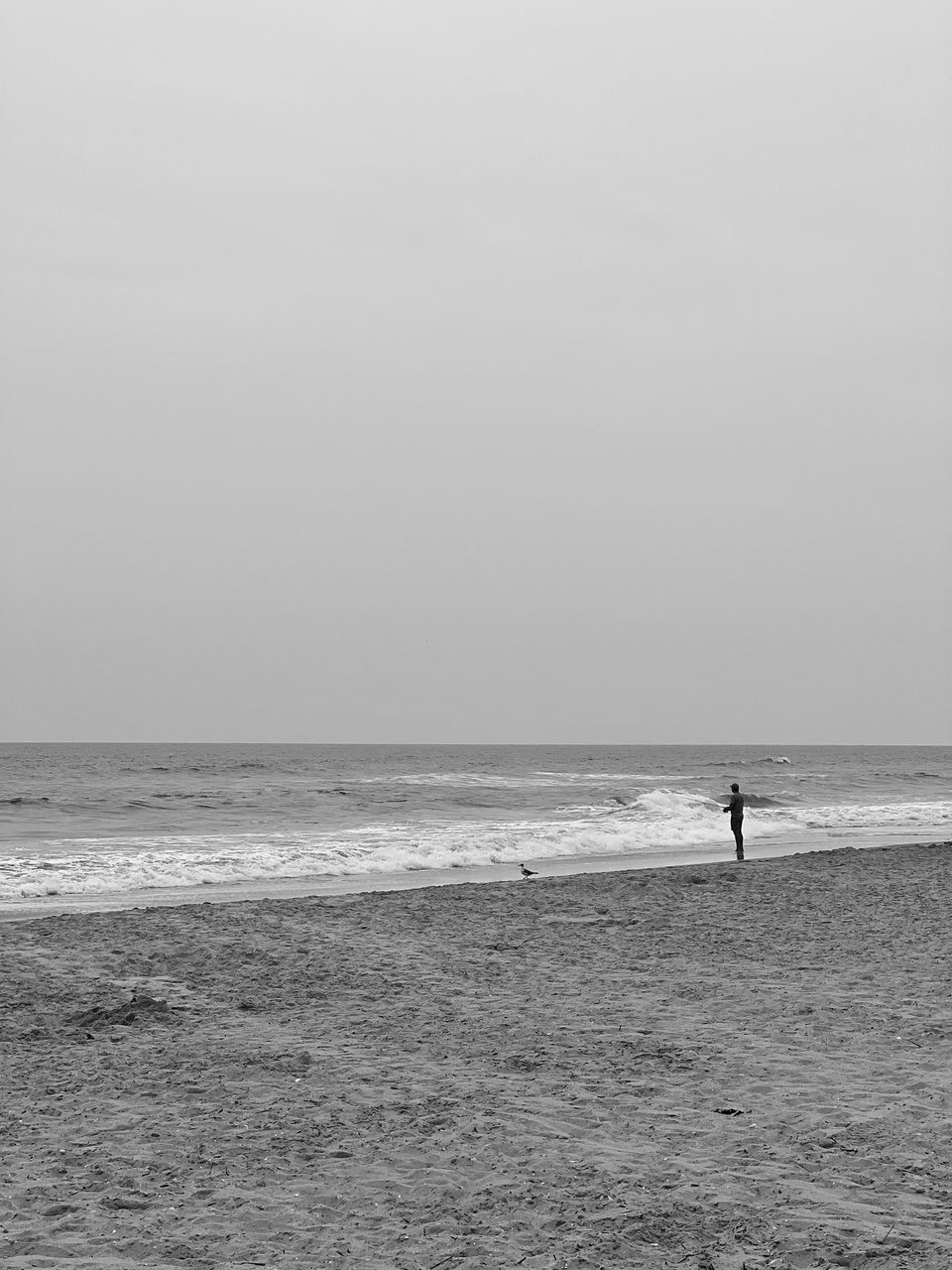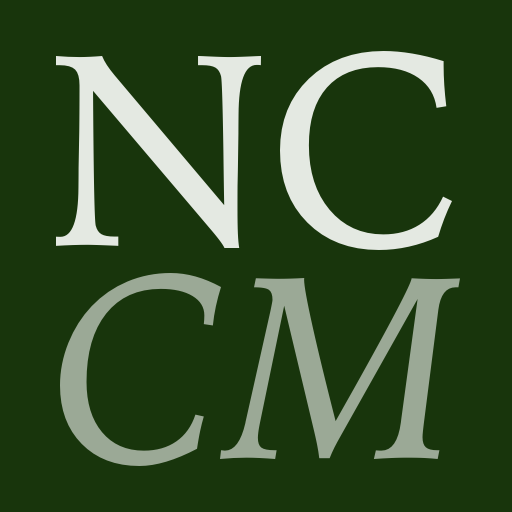It appears I have broken the rule of "about 500 words," as what resides below this photograph is three times that. While enjoying the overcast weather, I seem to have gotten a bit carried away and have rambled significantly. The TLDR of it: I agree with Manu's statement that "the never-ending quest to make everything accessible to everyone" is destroying what makes nature so special. Rather than look at accessibility from a point of infrastructure, I instead believe the first step should be cutting cellular service (i.e., banning phones) in an attempt to get people to better connect with themselves and the natural world around them.

I’m sat here, thinking about Manu’s missive from yesterday, particularly when he said, “…but sadly, in our never-ending quest to make everything accessible to everyone, we have slowly turned secluded peaks into tourist attractions, easily reachable by cable car in exchange for money.” This made me ponder the idea of access and it’s role in the natural world, at which point my brain followed Alice and down the rabbit hole we went.
To think about access, we — at least those of us in the United States — must decide whether we are discussing public or private land, as there’s quite a bit of difference. Allow us to use the beach, where I currently am, as example. Despite being deemed “public land,” you must pay for a beach tag — between $10 and $35 depending on how long the pass is good for — or else you are told, not asked, to leave the beach. This, as well as the definition of “public land” — land that is “owned and managed by a government entity — conflicts with the idea of something being public, “open to or shared by all the poeple of an area or country.” To make this all the more confusing, both a city park and a beach are considered public land, but only the latter charges you a fee while the other runs off of tax revenue.
At the same time, despite public land not being privated by individuals or corporations, politicians may introduce — and pass — legislation allowing the land to be used for various purposes (i.e., drilling for natural gas and oil). While the public may (attempt to) stop these bills from passing — with peaceful protests, calls to senators and congressmen, voting at every electoral level — as we saw recently with the One Big Beautiful Bill and it’s unpassed laws regarding the sale of land in national parks, there is no guarantee that our voices will be heard, let alone listened to. I question, then, the true difference between private and public land if either can be done with as the owner, government or individual, pleases.
This being said, our focus regarding access shall remain on what is considered public land. To deepen the conversation a bit, we shall narrow in on national parks in particular. For one, and to make my position clear, I am all for national parks charging an entry fee, despite my ridicule of beaches doing so. In fact, I believe national parks should increase their fees by at least double. Do away with the ticket systems and time entries — they only restrict this “public” land. Allow the high entry fees to push out the masses, those who so frequently destroy what ought to be protected. Push away the litterers and carvers of stone and tree, those whose egos fill each and every room they enter, who always believe it is someone else’s responsibility to pick up after them. Man-children, as they are.
With the higher revenue, the park rangers and necessary staff may (finally) earn a respectable wage. At least enough so that they may feel as important as their jobs truly are, but perhaps not so much that buffoons who care little of the natural world, and desire only money and what they think is an easy job, attempt to acquire the position. Hire those who care to make a difference, who wish to erase evidence of the disease we call humanity — if not entirely, at least within the borders of the national parks. To make the already difficult job easier, we must also rid our parks of the gross accessibility measures Manu alluded to — and I shall expand upon — that have been taken in the past century.
Let us keep the ramps and whatnot, that which help those who need it, in places that make sense. But why must so many trails be paved? Must there be roads and parking lots right in front of vistas and waterfalls and et cetera? Are we afraid to walk, to work for our reward, our pleasure? Not every individual needs to see every spectacle of nature. Allow nature to be experienced as it should be: natural. Not as a glorified amusement park and petting zoo.
Edward Abbey said it best:
No more cars in national parks. Let the people walk. Or ride horses, bicycles, mules, wild pigs — anything — but keep the automobiles and the motorcycles and all their motorized relatives out. We have agreed not to drive our automobiles into cathedrals, concert halls, art museums, legislative assemblies, private bedrooms and the other sanctums of our culture; we should treat our national parks with the same deference, for they, too, are holy places. An increasingly pagan and hedonistic people (thank God!), we are learning finally that the forests and mountains and desert canyons are holier than our churches. Therefore let us behave accordingly.
There are multiple issues with the current way of accessibility within national parks. Most lie in the realm of environmental devastation: most everything disrupts the natural ecosystem, whether it be paved roads and parking lots or cabins and information buildings. Even the trail markers and signage. Alas, some of these conveniences are necessary. Roads in and out of places will always be needed — though they need not be paved, nine out of ten times — and an information building should be present, if only to educate visitors on the park’s history and temptations. The rest? Damn it all. A single parking lot shall reside, taking up space for no more than one thousand vehicles of standard size — no oversized trucks taller than man. A single dirt road shall lead to this parking lot; when it inevitably floods out, no admittance or exit is permitted. What a shame to be stuck in nature.
From this visitor’s center shall branch multiple trails, three of which leading to campgrounds to accomodate the visitors. The campgrounds will be simple, with no running water or flush toilets. You either shit in the woods, or you hold it until you are home. There will be no electrical hookups, no space for RVs or camper vans. A tent will suffice you fine — you shouldn’t be in it for much else past sleep and the occassional fuck, anyway. Also there will be provided a picnic table and a campfire ring, for we all deserve a luxury or two.
The other trails will lead to destinations close and far. Perhaps you should bring your tent along with you, camp in the wild, for to get from one point in most national parks to the next will take many hours, at minimum. Without being able to drive, you will also need a worthwhile pair of hiking boots — not sneakers, for you will need the ankle support — and a hiking bag worth its salt, in which you will carry your tent and food and water and your many other “necessities.”
The most detrimental accessibility feature of the modern era, however, must be cellular service. While Edward Abbey had his grievances in his time, mine are such that we are too greatly and too easily connected to the outside world while attempting to escape it. Perhaps people are too afraid of being ostracized by society, afraid of being forgotten by family and friends and internet strangers alike. They desire an escape from the hustle and bustle of their daily lives, but they cannot fathom losing access to their television shows and internet memes. So, we remain connected, even in the depths of the woods.
Some may claim having constant service is a good thing, that it protects and saves lives. That is true, and that is exactly why I believe any avid hiker should carry with them a satellite phone, particularly when in places of higher danger or for extended periods. Something you must pay for — like your entry fee to the park itself — so you wish to be on it no longer than you must. There shall be no unlimited plan. Enough to make a call or send a text but no more is needed.
Why?
People already struggle like hell to put down their phones while conversing with friends or on a date with a new lover. Any time the device pings, there is a rush to pick it up, check to see the cause for the effect. Our fear of missing out is too great, too untamed, too untamable. Must we bring this to the wild, despite our claims of wishing to “escape it all”?
Although I agree with Abbey that the accessibility of national parks must be altered — more adventure, less infrastructure — I believe the first step should not be with the way in which we traverse the landscape in a physical fashion. No, we must first approach how we walk through nature in the mental and spiritual space. From there, and only there, change may be made.
— C
